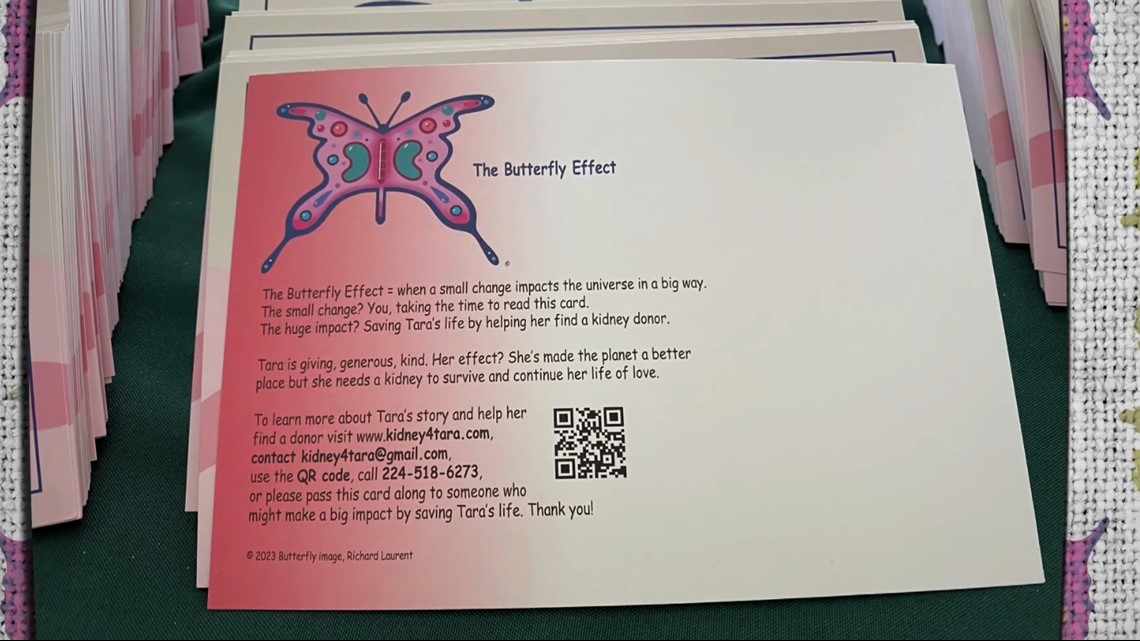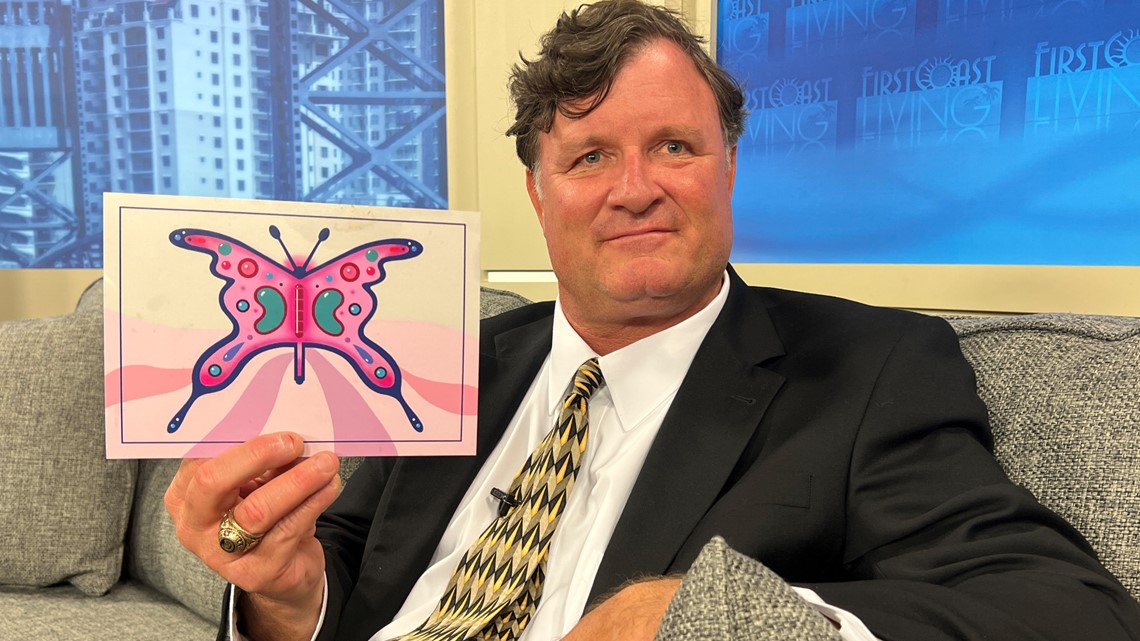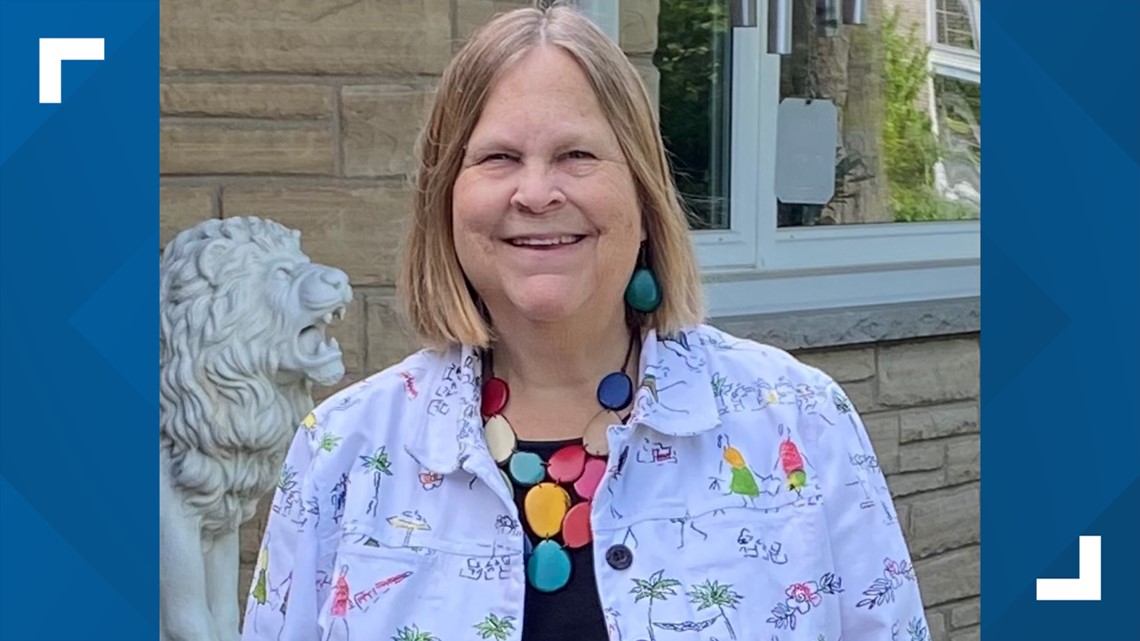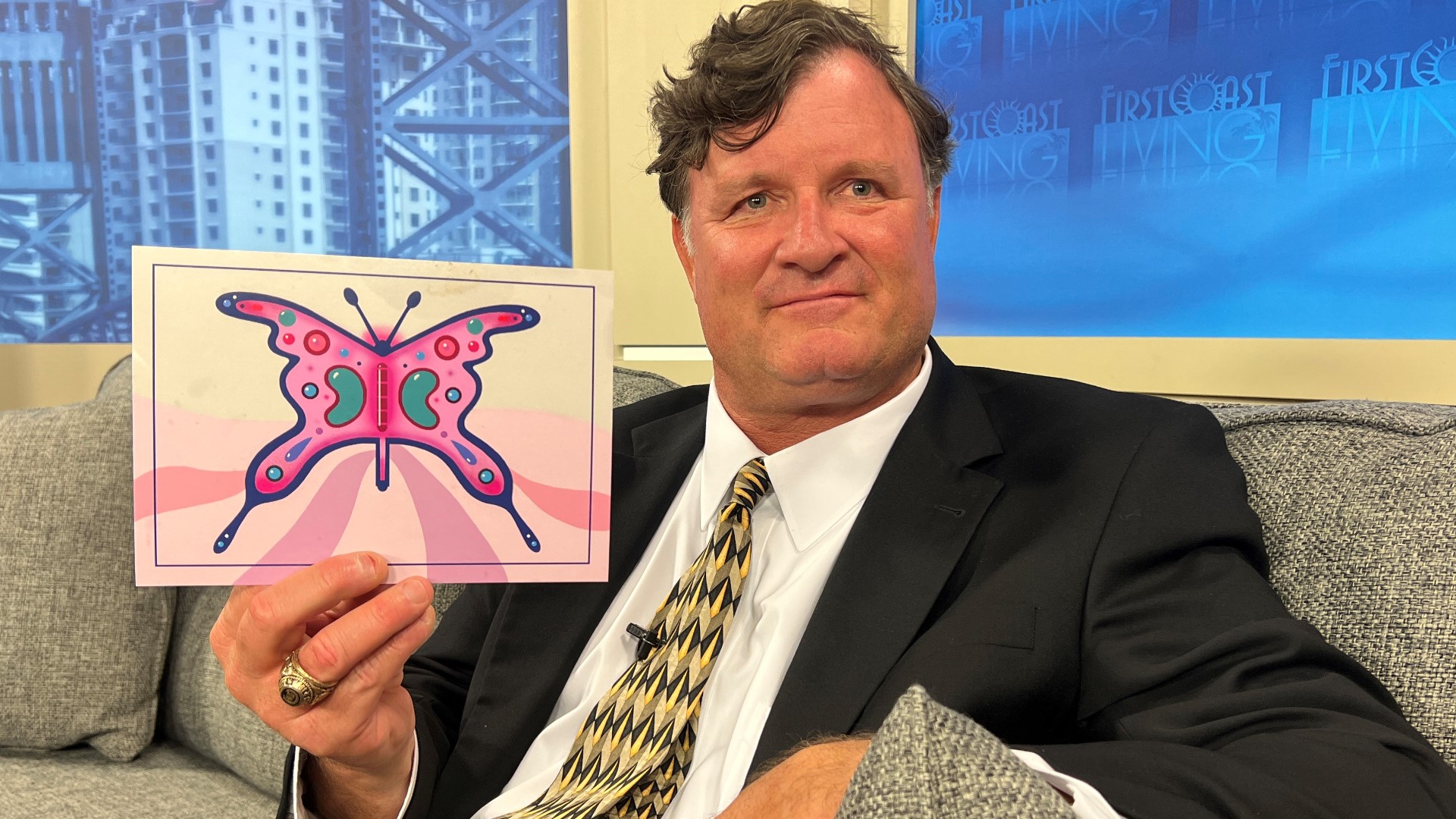JACKSONVILLE, Fla. — Diagnosed with Stage 4 kidney disease Tara Mano, who lives in Illinois, mailed thousands of cards to people living around transplant centers asking for help finding an organ donor.
“When I got Tara's card, it just struck a nerve,” John Hughes said.
Hughes, who lives in Jacksonville, got one of the cards in the mail last year. He has never met Tara but felt compelled to see if he was a match.


“I know that it's very possible, and a lot of people do it. They live with one kidney for the rest of their life,” Hughes said. "This was a way to do something that is, it's more than a monetary gift. It's a life gift. So, I'm happy to do it.”


While he's not a match for Tara, on Thursday he will donate his kidney at Mayo Clinic Jacksonville to another stranger.
“To be honest, the greatest part of it is, it turns out the chain that I'm involved in, there's actually going to be three different people on Thursday from the chain that starts with me that will be getting new kidneys.
It's called a kidney paired exchange.
“Someone offers a kidney on your behalf. Your donor's kidney goes to someone else that could receive it. and then their kidney would come back to you,” Dr. Shennen Mao said. “That chain could be as simple as two people swapping. we've had chains much longer than that, 8, 10, 20 patients or longer.”
Hughes does not know who will receive his kidney.
“They are all strangers. I was told that one of them is in the Midwest, that's where mine is going. And the other one is the Northeast. The other one is in the Mid-Atlantic,” Hughes said.
Donating his kidney will bump Tara up on the transplant list. Time is of the essence. In January, months after we first shared her story, she says her kidney function took a turn for the worse.
“My kidney function has declined such that I had to start emergency kidney dialysis in order to survive,” Mano said.


She is grateful for Hughes’ selfless act of radical generosity.
“I think it's absolutely miraculous. When you think about it, you know, tomorrow, somebody's going to get his kidney, and he's going to have saved their life,” Mano said. “And in doing that and starting the paired donation, he's also designating the kidney for me, he's also going to save my life. And I can't think of anything a person could do that would be more impactful than that.”
Tara doesn't yet know when she will get a kidney, but a Mayo Clinic spokesman said typically in paired exchanges like this a donation usually occurs within 30 days, but there's no guarantee.
Right now more than 103,000 Americans are on the national transplant waiting list according to the government. 17 people die each day waiting for a transplant. To sign up to be an organ donor click here.

